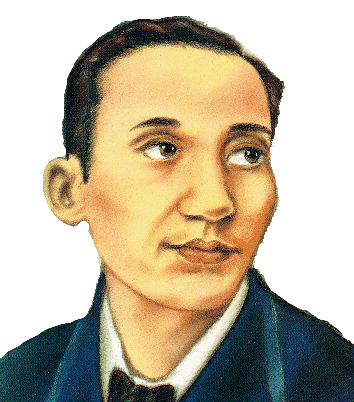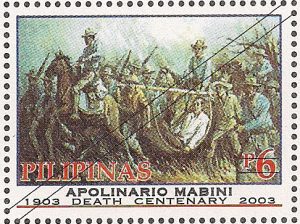Trivia about Apolinario Mabini
On May 13, 2003, the nation remembers one of its greatest heroes, Apolinario Mabini y Maranan. Known as the “Sublime Paralytic,” Mabini was the intellectual soul of the Philippine Revolution and the Philippine Republic. He was born on July 23, 1864 in barrio Talaga, Tanauan, Batangas, the second of the eight sons of Inocencio Mabini and Dionisia Maranan. His family’s poverty did not prevent him from seeking an education. He supported himself serving as a teacher of Latin in the school of Melchor Virrey in Manila and in the school of Sebastian Virrey in Lipa. Mabini served as a teacher and law clerk in the court of first instance in Manila and in the Intendencia Ganeral. He completed his law studies at the University of S’anto Tomas and in 1895 he was admitted to the bar.
In September 1892 Mabini joined the Masonry and in the following year joined the revived La Liga Filipina and the Cuerpo de Compromisarios, which were formed to extend support to the Reform Movement. On October 10, 1896 Mabini was arrested by the Spanish authorites because of his connection with the reformists. At that time he was already stricken with polio which saved him from being shot. The Spanish authorities placed him under house arrest at the San Juan de Dios hospital.
In April 1898 he wrote a manifesto to revolutionary leaders exhorting them to preserve the country and its independence. When General Emilio Aguinaldo arrived from exile he made Mabini his chief adviser. Among his recommendations were to convert the dictatorial government to a revolutionary one and to organize the municipalities and provinces.
Mabini served as President of the Council of Secretaries and as Secretary of Foreign Affairs in the Aguinaldo government. He wrote most of Aguinaldo’s decrees to the people and wrote EI Verdadero Decalogo which was his introduction to his draft of the Philippine Constitution meant to arouse patriotism among the Filipinos. Mabini advocated independence with honor in dealing with the Americans. This position came in conflict with people who preferred autonomy under the United States, causing Mabini’s ouster from the Aguinaldo cabinet. He was captured by the Americans on December 10, 1898. Even as a prisoner he kept writing articles against American rule causing the American authorities to brand him as the “Brains of the Insurrection.” He was exiled to Guam with 56 other Filipinos. With his failing health and the possibility of dying in a foreign land he returned to the Philippines on February 26, 1903 and reluctantly took the oath of allegiance to the United States. He refused all offers of high positions in the government and retired to his home in Nagtahan, Manila. He died on May 13, 1903, a victim of the cholera epidemic raging at that time.


Recent Comments